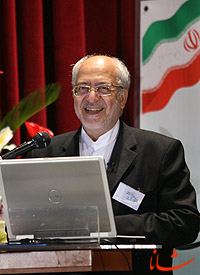Mohammad-Reza Nematzadeh added Iranian refineries’ current capacity stood at 1.625 million barrels per day.
“The capacity will soar to 2.94 million barrels when the development plans are put into operation,” said the NIORDC head, adding the gasoline production and gas oil out put in 2001 amounted to 37 million liters and 71 million liters daily respectively and predicting the figures would rise to 45 million liters and 82 million liters in the current year.
He said the growth rate of gasoline consumption between 2002 and 2006 was 10 percent.
“When the new refineries come on stream, the gasoline production capacity will increase to 163 million liters from 42 million liters while the gas oil output will soar to 139 million liters from 80 million liters, kerosene to 42 million liters from 23 million liters, and gas liquid to 28 million liters from 8 million liters, but the furnace oil production will be less than the current 76 million liters as it will be transformed to light products,” Nematzadeh predicted.
Elaborating on the contracts the NIORDC signed in the previous yea, the official said, “We inked contracts, valued at some 8 million dollars, on gas production in
“On the other hand, we have made investments abroad. The construction of a refinery in
Shifting to the manpower, Nematzadeh said, “NIORDC hired 2,287 last year, of whom 837 hold BS or higher degrees.”
He added, “We put the plan out to tender, valued at 8.7 billion dollars in the previous year and the credits, due to the signing of main contracts, had opened.
“Such a huge investment is unprecedented in the past 10 years,” boasted the deputy ministry of petroleum for oil refining and distribution affairs, expressing hope the executive operations of the projects would be carried out in the current and next years.
Referring to main goals of the NIORDC, Nematzadeh said, “We seek three objectives in the oil refining and distribution sectors this year. We aim to become self-sufficient in oil products and to prevent imports, to improve the quality and to increase the quantity of oil products through further participation of the private sector, and to manage the energy consumption in order to curb the fuel consumption.”
The official added that the oil industry was the basic industry of the country, playing a very important role in developing the economy, providing the public welfare, creating job opportunities, and upgrading the technologies.
Desirable dissemination of information and organization of international exhibitions were playing effective roles in updating the general public’s information, added the NIORDC chief.
Shifting to the country’s gasoline output, he said the daily petrol production would hit 126.053 million liters by 2011.
Nematzadeh added the plans on optimization and improvement of refining process and increase of refineries’ capacities would help achieve the objective.
“We have carried out comprehensive studies on refineries and have prepared a master plan for every refinery during the past two years. Now, development plans and new refining patterns of all refineries are ready for being put into action in the Fourth Development Plan.”
He said the development plans of refineries aimed to improve manpower structure, economize refining operations, promote the quality of oil products according to the latest international standards, optimize refining model, reduce the production of low-value products such as furnace oil, boost the output of high-value products like gasoline, cut the consumption of energy and fuel, and improve the control systems.


Your Comment